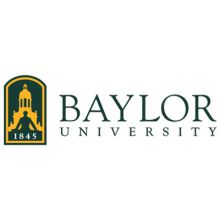As one of America’s most eminent and outspoken vaccine scientists, Peter Hotez often receives abusive and threatening emails from anti-vaxxers and other self-declared “patriots”. But the toxicity and menace faced by the Baylor College of Medicine researcher hit a new intensity this year when Elon Musk joined the attacks.
“He’s afraid of public debate because he knows he’s wrong,” posted the maverick billionaire on X, formerly known as Twitter, after the biologist declined an invitation from Spotify podcaster Joe Rogan to debate Robert Kennedy Jr about the presidential hopeful’s claims that vaccines caused harm. For Mr Musk, Professor Hotez’s refusal to take up the broadcaster’s offer of a $100,000 (£82,000) charity donation to go head to head with Mr Kennedy vindicated his stance. “Maybe Peter Hotez hates charity,” the Tesla co-founder later quipped.
“I’ve interacted before with Robert Kennedy, and these weren’t productive conversations – he kept moving the goalposts,” Professor Hotez said of his reason for turning down the proposed face-off. “Debating a science denier is seldom productive.”
For many scientists, Mr Musk’s snarky attack on the Texas-based biologist in the week he was nominated for the Nobel Peace Prize for having created a low-cost Covid vaccine reinforced a powerful sense that Twitter had lost its way as a forum for scholarly debate. Since Mr Musk’s $44 billion purchase of Twitter in October 2022, timelines had become swamped with crackpot posts from cranks often focused on Covid and vaccines, many have said. But the episode had darker implications for Professor Hotez, who said anti-vaxxers began stalking his home in Houston – a worrying prospect for someone who frequently receives anonymous threats that he will be “hunted” and “face justice” for supposedly being a “shill for Big Pharma”.
Those chilling warnings – often accompanied by Nazi or Holocaust imagery – are detailed in Professor Hotez’s new book, The Deadly Rise of Anti-Science, which argues that scientific misinformation has gone far beyond the realm of conspiracy loons – however wealthy or prominent – peddling schlock for clicks on social media. According to Professor Hotez, anti-science has become the “scary new normal across conservative America” thanks to sustained attacks on scientists, universities and government health agencies. The difference from previous generations is that “it is now coming from state governors and political groups, which are then embraced by Fox News”, Professor Hotez told Times Higher Education.
“It is becoming a political and commercial enterprise which is organised, well financed and politically motivated,” he continued, pointing to how debunked figures about Covid used by the Republican-led House Freedom Caucus have been key to the group’s political success on Capitol Hill.
“This is a full-on belief system for many Republicans and the far right,” said Professor Hotez, whose book highlights how “anti-vaccine groups and the far right found and mutually enforced each other”. Extremist groups such as the Proud Boys, which led the storming of Congress on 6 January 2021, “began promoting a vaccine agenda”, he notes, with the two movements finding “synergies” by attacking scientists with spurious charges of treason.
Professor Hotez’s willingness to direct his criticism squarely at Republican politicians – particularly those in his home state of Texas – is unusual in a world where prominent scientists usually seek to avoid accusations of partisanship. But he is unapologetic about where America’s “anti-science” problem lies, expressing his “disgust and anger towards those willing to sacrifice American lives for political gain”. In a chapter titled “Red Covid”, he describes how “vaccine defiance” fostered by anti-science rhetoric led to the “preventable” deaths of about 200,000 Americans.
“In my own state of Texas, 40,000 people who refused a vaccine lost their lives, and they are the victims of anti-science,” said Professor Hotez, who found it “heartbreaking to see how these people were targeted by these views for the sake of political ratings”. With so many “victims”, it is impossible to remain politically neutral, he told THE. “I’m reminded of the scholar who said the idea that scientists do not get involved in politics, or remain neutral, blew up with the bomb at Hiroshima,” he reflected.
His critics may, of course, write off the former science envoy to Barack Obama as a “deep state” Democrat “operative”. Yet Professor Hotez’s candour about how vaccines did not cause his own daughter Rachel’s autism and intellectual disabilities – a gene linked to autism was identified, he explained in a 2018 book – is the kind of frank and deeply personal public engagement that cannot be so easily dismissed.
But the rise of “anti-science” as a political, commercial and media force – tied to authoritarian politics – means new approaches are required, he said. Universities and individual researchers should not have to tackle this tsunami of disinformation on their own, he writes in his book, calling for a non-profit institution akin to a “Southern Poverty Law Center for Scientists”, in reference to the organisation set up in the 1970s to combat racism and fight for civil rights.
“I have strong backing from my institution, but not everyone has this, and they can’t withstand the legal thuggery or threats of subpoenas that well-funded groups can muster,” said Professor Hotez.
Tougher punishments for those who target scientists with threats or abuse should also be considered, with such actions potentially classed as a hate crime, he suggested. “These guys are not patriots – scientists are the ones who helped to build our great research institutions and universities, which is why people want to come here to study and live. We shouldn’t forget that.”







